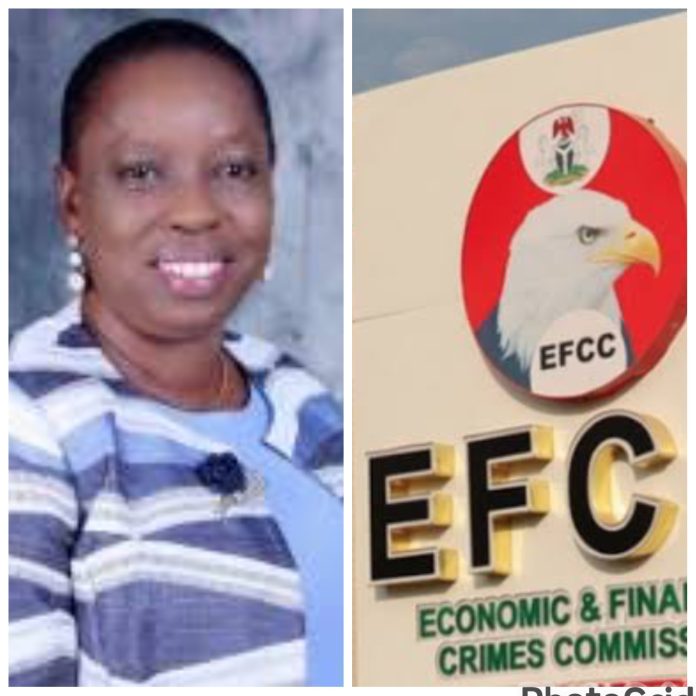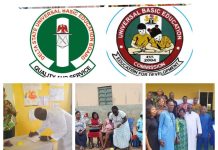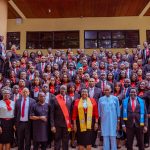By Kenneth Orusi
The recent arrest of Delta State’s Accountant General, Mrs. Joy Enwa, by the Economic and Financial Crimes Commission (EFCC) has cast a spotlight on the persistent challenges of financial mismanagement and corruption within Nigeria’s public sector.
Mrs. Enwa’s detention is part of a broader investigation into the alleged diversion of N1.3 trillion during the tenure of former Governor Ifeanyi Okowa.
The EFCC’s probe centers on the suspected misappropriation of funds, including portions of the 13% derivation allocation intended for oil-producing states like Delta.
These allocations are crucial for the development and economic empowerment of the Niger Delta region.
The alleged diversion of such substantial resources not only undermines the region’s progress but also erodes public trust in governmental institutions.
Mrs. Enwa’s history in the state’s financial management raises further concerns.
In 2015, as Deputy Accountant General, she was implicated in a N369 million fraud case involving other state officials and bank representatives.
Although the allegations were denied at the time, her current entanglement in another significant financial scandal suggests a troubling pattern of oversight and accountability within the state’s financial apparatus.
Former Governor Okowa, under whose administration these alleged financial irregularities occurred, was detained by the EFCC in November 2024.
He is accused of using his office to divert state funds for personal gain, with assets allegedly tied to the fraud, including shares in UTM Floating Liquefied Natural Gas Company and other oil sector investments.
Okowa has dismissed these allegations as politically motivated, yet the gravity of the claims necessitates a thorough and transparent investigation.
The recurring emergence of such high-profile corruption cases underscores systemic weaknesses in Nigeria’s governance structures.
Despite the establishment of anti-corruption agencies like the EFCC, the persistence of large-scale financial misappropriation indicates that existing mechanisms may be insufficiently robust to deter or detect malfeasance effectively.
To address these challenges, there is an urgent need for comprehensive reforms aimed at enhancing transparency, strengthening institutional checks and balances, and fostering a culture of accountability.
Implementing advanced financial management systems, ensuring the independence and capacity of oversight bodies, and promoting civic engagement in governance processes are critical steps toward mitigating corruption.
The case of Mrs. Enwa and the alleged N1.3 trillion diversion serves as a stark reminder of the profound impact of corruption on Nigeria’s development trajectory.
It diverts essential resources away from public services, undermines economic growth, and perpetuates inequality.
It was reported last week that the EFCC had reinvited her and others to the office this week, for further quizzing and possible detention, over the N1.3 trillion diversion linked to Okowa, now addressed as the supreme leader of Delta North Peoples’ Democratic Party (PDP).
As the EFCC continues its investigation, it is imperative that due process is followed, and that any individuals found culpable are held accountable to restore public confidence in the nation’s commitment to combating corruption.

















